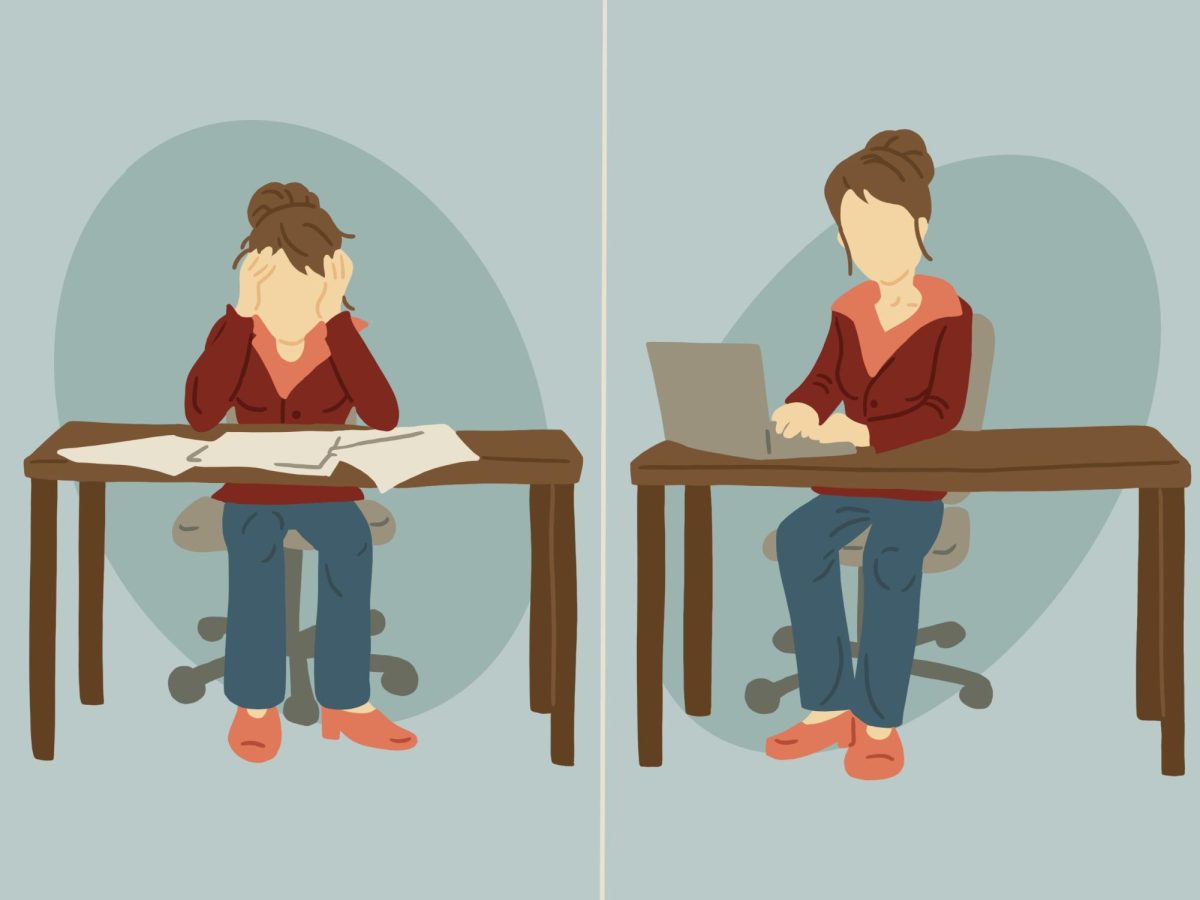Often, high school students are faced with a fork in the road when it comes to time management: study in advance or cram the night before?
While thinking about studying might conjure images of working at a desk for hours in order to prepare for a test, this doesn’t have to be the only approach, as there are many ways to study in both a productive and impactful way.
“I feel like, with studying, it’s just better long term, especially doing different methods to studying,” senior Shakira Kahl said. “If you study with a group of people, you might understand it better.” She also believes that students remember things better if they work with one another.
According to the American Psychological Association, there are many benefits to studying in advance for a test or quiz versus the night before. There are many negative impacts that cramming can have such as worse final grades, because of over exerting your brain and not retaining information, lack of sleep, and worse mental wellbeing.
The effects of cramming can often be observed among students. Many of the people that go to La Salle are having to balance extracurricular activities alongside their schoolwork and studying, which can be difficult to manage. Students are stretched thin with having to juggle all their different obligations; it can start to take a toll on their mental and physical wellbeing.
One way you can balance your after-school activities with school work is trying to cut specific time out of your day to focus on school. Junior Phoebe Sandholm utilizes a compartmentalizing technique in order to manage her obligations both to her schoolwork and to the theater department, where she often runs the show as stage manager.
“I try to schedule out what I have to do each day,” Sandholm said. “I keep track of everything. So I’ll be like ‘okay, I’ll spend 20 minutes on that, like an hour on that,’ and get a grasp of things I need to do and how long they’ll take.”
Procrastinating is another problem Sandholm thinks is a big reason for cramming, that has reached every student at least once in their lives. This is a potential reason that students may begin cramming for tests the night before, and by doing this, students tend to cause themselves to panic and stress.
“I definitely study more in advance than in freshman year. I would just kind of study the night before and like, just do that,” Kahl said.
Getting work in on time is super important, and even turning in homework that isn’t due for another week can help you make more time to study, which will lead to less stress.
Sophomore Abby Ludwig feels that it helps to set a time in your day to study. She likes to separate her time in order to help her manage her workload, making use of timers to better organize her studying.
“I noticed on one of my finals, I kind of crammed, and I did really bad compared to the ones that I studied a lot more for,” Ludwig says.
To avoid distractions, Ludwig puts her phone away each time she studies, so she will stay on task and focused. She also lets her family know ahead of time when she will be studying, so she can remain uninterrupted during this time.
“I’ve learned that even though it feels good to put it off and wait longer to study, like closer to the test,” Ludwig said. “It never really works and then it actually makes you feel a lot worse when you don’t do as good as you know you could on the test because you didn’t study early enough.”
She also said that she believes that cramming can work, but it might not work on multiple occasions. “It really depends on how well you know yourself and how good you are at the subject,” Ludwig said.
After long breaks in the school year, such as winter and summer break, or transition periods, such as the beginning of a new semester, students may find themselves struggling to keep up with classwork.
However, there are several academic resources that can help to lift students out of this academic slump. Flashcards and Quizlet are great ways to study, and they can help students with remembering important information. Kahl utilizes both of these digital tools to study as well as asking teachers for help on the concepts she does not understand.
Organization plays a large part in preparing for tests, but it is also useful for general schoolwork. When she does homework for her AP Chemistry class, Kahl has a very large setup, with her iPad, homework, homework keys, notes, and periodic table spread across her desk.
One place students can study inside the school is the Hamersly Library. “I’ve been going to the library or the makerspace to do some homework and get some of that done,” Sandholm said.
Staying on top of any work that’s given is important, and it will set you up for success when it comes to studying for a longer span of time in small modules, rather than cramming for hours the night before.








